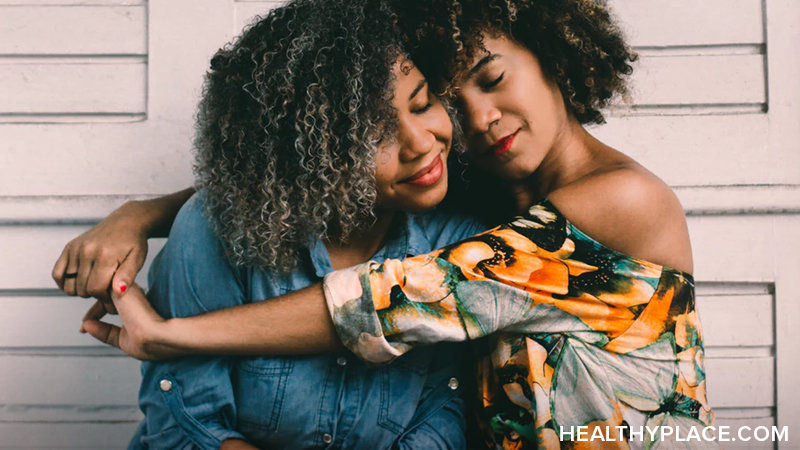6 Dos and Don'ts for Dating Someone with Disordered Eating

Dating someone with disordered eating can be confusing. I've never been in a relationship where my significant other totally gets my complicated relationship with food or my disordered eating habits. Despite their best efforts to empathize and understand, there seems to be a fundamental misunderstanding regarding these habits and the underlying motivations and experiences.
But, over the course of several conversations, I was able to break down some of the ways my current boyfriend can help and bring attention to some of his behaviors that are, well, not so helpful. Here are some dos and don'ts for dating someone with disordered eating.
Things to Remember When Dating Someone with Disordered Eating
Don't: Imply Disordered Eating Is About You
Once, after tossing out a burrito I suddenly could not bring myself to eat, an ex said to me, "Don't diet on my account. I love your body." Well, that's nice, but not relevant to my eating habits. In fact, the remark made me feel vain and superficial. At that moment, I was already feeling vulnerable, anxious and, well, hungry. I had not been thinking about my then-boyfriend at all, but his remark made me worried I had given him the impression that I was choosing my disordered eating in order to please him, which was not the case.
Do: Regularly Demonstrate Love
While compliments are thoroughly unhelpful in tandem with my moments of disordered eating, showing love regularly is helpful. Affection and words of kindness are, I think, reassuring to us all. In my experience, the support and kindness of my partner are integral to my healing. When my boyfriend demonstrates that I can count on him during hard times, I'm better able to tackle my demons.
Don't: Critique Eating Behavior
As someone who sometimes slips into binge-purge patterns, I have gotten both, "Eat up," when I don't want to eat and "You sure you want to eat to eat that," when I don't. I understand this might seem helpful -- maybe you feel concerned that your loved one is restricting food and want to help. Or maybe, you know your partner will feel bad or guilty following a big meal. But trust me when I tell you, comments like these tend to inspire shame.
Do: Respectfully Express Your Concern
If you notice a behavior that resembles disordered eating, like the instances described above, I can tell you that I would prefer my partner sit down with me on a separate occasion to express that concern. In this way, you can express your love and concern for your partner's wellbeing without making him or her feel cornered or shamed. It also allows you to come up with a plan that is productive and coherent.
Don't: Assume Disordered Eating Is Just Neurosis
Okay, you'd think this would be obvious, but somehow this staple can get lost in the messiness of relationships over time. I often find that partners are super understanding about symptoms -- whether these symptoms are mental or physical -- at the start of the relationship. But over time, as these symptoms begin to impact the life of my partner, a trickle of doubt seems to creep into our relationship. Suddenly, there isn't as much patience as there was in the beginning. In some particularly unfortunate cases, there are even accusations.
Do: Understand that Battling Disordered Eating Is Ongoing
In my case, my disordered eating blooms from my chronic illness, an autoimmune illness called Behcet's disease, which often causes pain and ulceration when I eat. Because I know I might be doing damage to my insides when I eat too much, eating food I hadn't planned on eating causes me a lot of shame. Even now that I've found some potential solutions to the physical problems, the disordered eating and shame reaction remains. Fighting for mental health is an ongoing process.
Do you have thoughts or observations about dating someone with disordered eating? Let me hear from you in the comments.
APA Reference
Card, M.
(2020, January 30). 6 Dos and Don'ts for Dating Someone with Disordered Eating, HealthyPlace. Retrieved
on 2025, December 3 from https://www.healthyplace.com/blogs/relationshipsandmentalillness/2020/1/6-dos-and-donts-for-dating-someone-with-disordered-eating